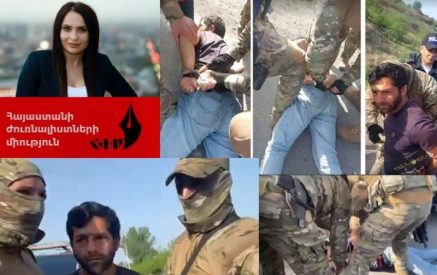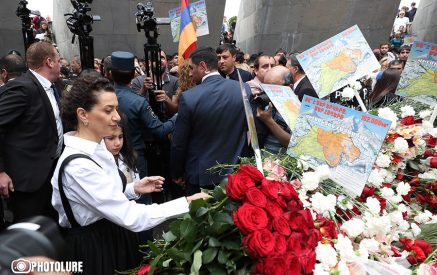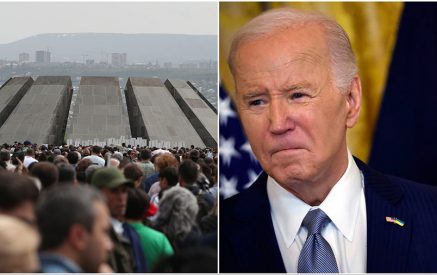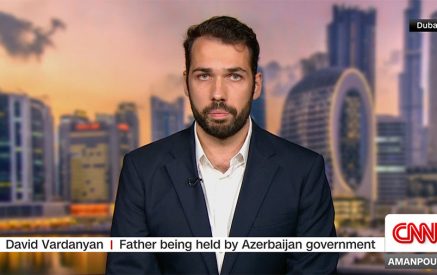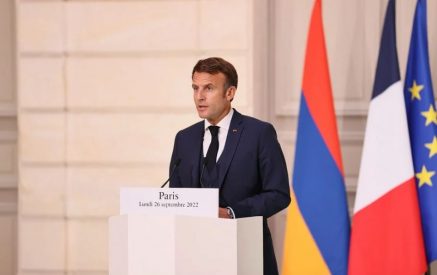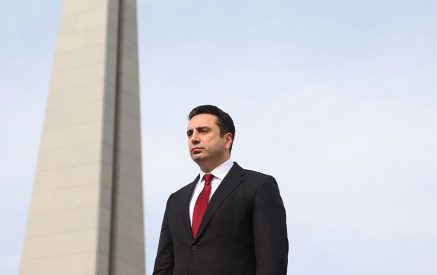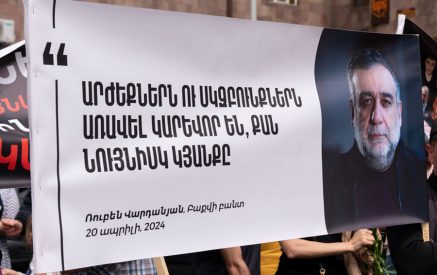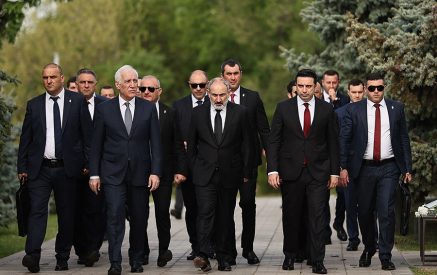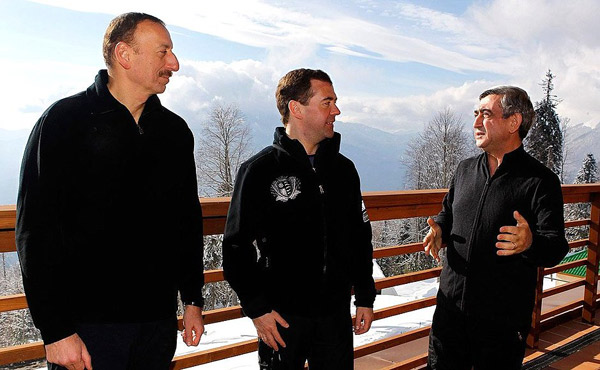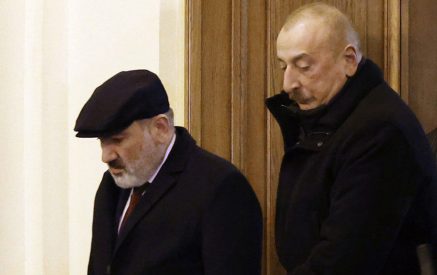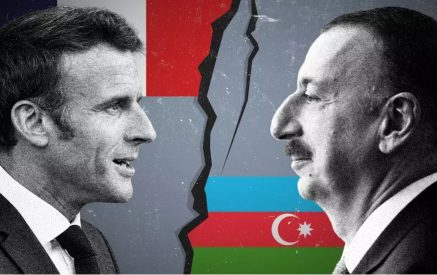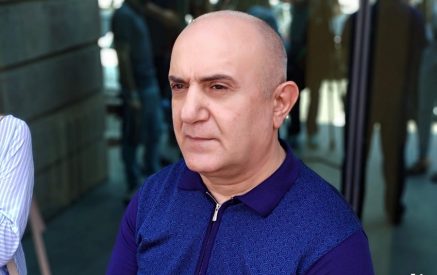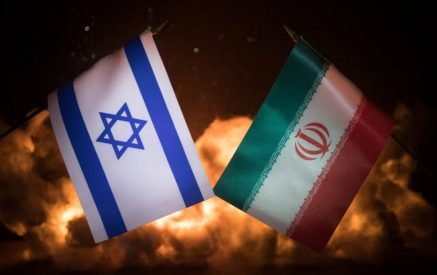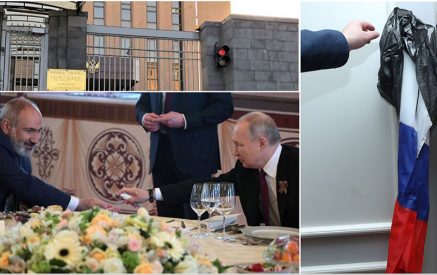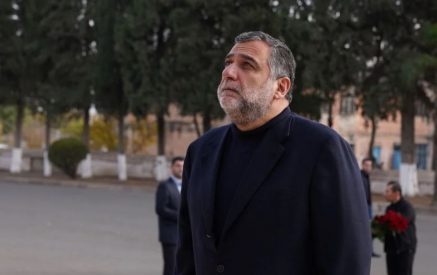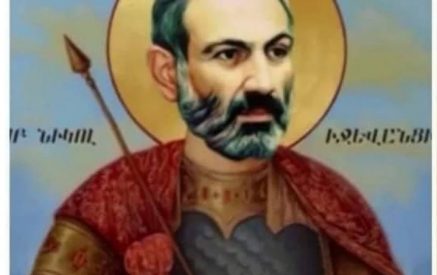In early June, Baku officially made a remarkable statement. An agreement has been reached about the peacekeeping forces that will be deployed in Nagorno-Karabakh, said Azerbaijani Foreign Minister unexpectedly. These forces, according to Mammadyarov, are not going to be from the OSCE Minsk Group co-chairing countries, nor from the countries of the region. As Mammadyarov said, the deployment of peacekeeping forces in Nagorno-Karabakh was included in Basic principles of the conflict settlement. “Nagorno-Karabakh conflict solution should be implemented stage by stage and all the stages are interrelated,” – he said.
Azerbaijani Deputy Foreign Minister Araz Azimov, referring to Deauville statement of the presidents of the OSCE Minsk Group co-chairing countries on May 26, said, “We attentively read this statement. Azerbaijan respects all the principles of the Helsinki Final Act and realizes that the right to self-determination of the nations should be carried out in accordance with the territorial integrity of the state. Azerbaijan is ready to make a concession and flexibility within the framework of the principles of commonly adopted international law. The status of the self-determination should be discussed in the next stage with the participation of two communities (Armenian and Azerbaijani). We hope to the consent of Armenian side by this way. We agree with the co-chairs that the current status quo is unacceptable. During the negotiations, Azerbaijan does not “discuss” the issue of its territorial integrity. The status of self-determination of both communities of Nagorno-Karabakh “should be” resolved within the territorial integrity of Azerbaijan”.
On June 20011, Baku officially was coming up with new “revelations” almost every day. In early June, Mammadyarov promised that the Armenian side raises the issue of the clarification of the deadline for holding the NKR expression of will. “Therefore, a number of issues of the “road map” remain unsettled. The consent thereof would pave a way for the development of a peace agreement,” he said. In response to the question of whether the Madrid principles would be agreed upon in Kazan, Mammadyarov noted, “It is too early to speak about it, I am not Nostradamus.”
Read also
While the mediators were cherishing great hopes with the Kazan meeting. Polish Nowa Europa Wschodnia (New Eastern Europe) newspaper published the interview of Personal Representative of the OSCE Chairman -In-Office, Andrzej Kasprzyk, in which he mentioned, “Today, we are close to the settlement of the conflict. Today, it is already known what was considered impossible. Some proposals were rejected in the past. For example, Armenia rejected the proposal of leaving Nagorno-Karabakh with broad autonomy as part of Azerbaijan. Azerbaijan, in turn, rejected the isolation of this region from Azerbaijan. This is a very complex situation, this conflict is a dynamite for the Presidents of Azerbaijan and Armenia which will explode if they make a wrong move. They may lose their posts, therefore, they need to act cautiously. Azerbaijan is in a favorable position as it has oil and gas bringing it big profits. Its military expenditures are greater than Armenia’s entire state budget. On the other hand, Armenians have good positions in the mountains while the Azerbaijanis are concentrated in the valleys.
Since 2004, we are advancing in the development of a common framework agreement and we have recorded a great progress. The OSCE Minsk Group co-chair countries have publicly stated about the consensus. They refer to the liberation of the territories around Nagorno-Karabakh, except the Lachin corridor connecting Karabakh to Armenia, the return the refugees as well as providing security guarantees by the countries that are capable of doing it, in other words, the UN Security Council members. Then, prior to signing the final peace that can take place after holding a referendum in this territory, there is an issue of an interim status of Nagorno-Karabakh. The special status should not essentially differ from the status which NKR currently has. At that time, the international recognition of this interim formation will be necessary. After the adoption of the framework agreement, discussions will be held on the details.”
In the same interview, Kasprzyk also stated that there are still many questions that are left unclear, such as the corridor connecting Armenia and Nagorno-Karabakh, the degree of its width and who is gong to control it prior to the signing of the peace. According to Kasprzyk, holding a referendum also remains problematic, which Armenians see it through the simple voting based on the results of the 1989 census of the population of Nagorno-Karabakh when Armenians were almost three times more than Azerbaijanis, “While Baku officially considering Nagorno-Karabakh to be its territory relies on its own Constitution which provides for holding a referendum throughout Azerbaijan. Therefore, no specific date for the referendum can be indicated.”
In early June, the co-chairs had arrived in the region again. In response to the question about “Renewed Madrid principles” in Stepanakert, Igor Popov said that he is not in favor of such a wording. The diplomat said that the proposals are made during each meeting, and currently there is a draft that needs amendments on a number of issues. The Russian mediator did not rule out that the latest version of the Basic principles will be approved in Kazan. The Co-Chairs had stressed that the presidents of Armenia and Azerbaijani can approve the final document on Nagorno-Karabakh conflict settlement in Kazan.
On June 10, at the joint press conference with Slovenian President Danilo Türk in Ljubljana, Azerbaijani President Ilham Aliyev announced, “We have created favorable conditions for the fair settlement of the Nagorno-Karabakh conflict.” On June 11, Moscow hosted the working meeting of the Foreign Ministers of Russia, Armenia and Azerbaijan, Sergei Lavrov, Edward Nalbandian and Elmar Mammadyarov, respectively. “During the discussion, the parties manages to narrow down the positions on a number of key issues of the Basic Principles for the settlement of Nagorno-Karabakh conflict,” – reads the RA MFA press release.
Emma GABRIELYAN


